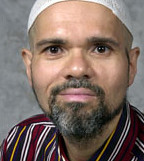Years ago, I worked with a film and television producer who brought me in as a senior copywriter for several dozen of his accounts, including American Greetings and McDonald's. It was fun and challenging work with considerable visibility. The scripts opened countless doors in my career.
One of the things that always struck me about his home office was a plaque that hung prominently by his front door. You couldn't leave the house without seeing it. Neither could he. That was the point.
The plaque unapologetically warned: "Be careful what you think for your thoughts become words, your words become actions, your actions become habits, and your habits become your destiny."
If you search for it, you'll undoubtedly find several variations. Most of them don't have any attributions, largely because the variations were built around Proverbs 4:23. It warns to be careful what you think because your thoughts run your life. It's an idea that was shared by Buddha too.
Public thinking might be a worthwhile prerequisite for social media.
More and more, people have been caught sharing any number of thoughts online with reckless abandon. But what they sometimes don't consider is that they aren't sharing their thoughts online. They're sharing words, some of which invite people to interpret them and predict future actions.
That is what happened to a 27-year-old single mother who lost her job over a Facebook post. She posted that she was happy to start a new job at a day care, but added that she hated being around kids.
The outrage that followed eventually landed in the laps of her new employers. They let her go.
There are scores of other stories just like it. Victor Paul Alvarez was fired for making jokes about Congressman John Boehner. Adam Mark Smith had to sell his home after posting a YouTube video. Justine Sacco regretted her joke too. She was fired after a single tweet on Twitter. It goes on and on.
It goes on so often that people aren't always sure who is the real monster. Is it the person who made the offense, internationally or not? Or is it the mob that follows? And what about the people who relish jumping on the public shaming band wagon? Or bullies? Or those with thin skins?
The truth is that it is all of those things and none of those things at once, mostly because we haven't quite adapted to an environment that provides plenty of borders but very few barriers.
What I mean by that is that we build most social network platforms around our friends and colleagues much like we have always built social circles — based on proximity, similarity, ideology, special interests. The only difference is that the Internet removes all physicality and invites in the world.
The whole world includes millions of people who have absolutely nothing in common with us. They have different dreams, needs, beliefs, backgrounds, feelings, experiences, prejudices, and tolerances — so much so that their entire reality is completely different. They don't even have to live half a world away. Living in an urban, suburban, or rural community is enough to create a polar opposite.
So when someone says something that would have otherwise been relegated to a coffee klatch with a few friends — people who have an entire context of who that someone is — to the entire world without any such context, they can expect very bad things to happen. They're no longer thinking out loud or within the safety of a few friends who may either chuckle or politely correct their ignorance. Instead, you're making declarations (no matter your privacy setting ). So choose your words wisely.
If you don't, there is a better-than-average chance to find yourself in the crosshairs of public scorn. It's a weird place to be, especially because retaliation doesn't adhere to the same sensitivity it demands from those it persecutes. Read the comments after any public shaming session and see what I mean.
The comments are generally vile, often even more so than the initial infraction. Some of it is even penned by people who are bullies with a temporary permission slip to threaten, ridicule, and demean someone else. In fact, I would not be surprised if the majority of children who have been bullied online earned their bruises from being publicly shamed. Some of those kids go on to consider suicide.
How to manage a successful social network presence, semi-private or fully public.
Proverbs 4:23 is even more right on the Internet than the era in which it was written. Your thoughts run your life and your public thoughts invite others to run it for you. Think before you post it and think twice before you pile on. What you contribute says more about you than anyone else anyway.
Never build a network for numbers unless you're a professional, preferably one with some public relations training. Instead, build your network based on your level of tolerance. The more tolerant, patient, and forgiving you can be, the bigger your network can be. Sure, being thick skinned can help too, but mostly in connection with and not as a substitute for those other three traits I just mentioned.
Of course, as much as we would like it to be, tolerance is not a two-way street. Appreciate it, but never expect it. Unless you pretend to be someone else, there will always be those who will dehumanize you and others over differences or disparage your ideas as a means to affirm their own. And no, I don't get it either.
Then again, after blogging for the better part of a decade, I no longer see the price of public shaming to be the corrosion of culture or even a threat to an individual's reputation as some might claim. The real price of public shaming is giving ourselves over to it by allowing the initial offensive remark or the public pile on to change our thoughts, words, and actions into something completely unrecognizable.
Then again, after blogging for the better part of a decade, I no longer see the price of public shaming to be the corrosion of culture or even a threat to an individual's reputation as some might claim. The real price of public shaming is giving ourselves over to it by allowing the initial offensive remark or the public pile on to change our thoughts, words, and actions into something completely unrecognizable.
Absolutely, criticism can be healthy but only when we remember to take on the behavior and not the person. Try to contribute something positive instead because, after all, your thoughts are words and actions online — actions and words that can determine your destiny. Good night and good luck.
































